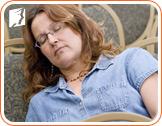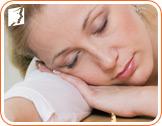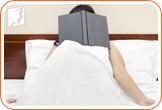
Menopause symptoms can include hot flashes, night sweats, and fatigue - the last one often being the culmination of all the other symptoms. While fatigue is often a consequence of struggling to deal with all the other menopause symptoms a woman may be facing, these are nevertheless disturbing symptoms capable of disrupting a healthy quality of life. Read over the following page for more information on handling the symptoms of fatigue.
What Is Fatigue?
Fatigue can describe a range of things related to lethargy and general tiredness. It is both physical and mental, characterized by the inability to function at the level of your normal abilities.
Menopause fatigue is not just simply a result of lack of estrogen or progesterone, but it is also a result of many factors linked to menopausal symptoms. For example, night sweats and insomnia take a toll on your body and can result in a chronic lack of sleep. This then translates into fatigue during the day. Once you start feeling fatigued, this increases stress and anxiety levels, which in turn exacerbates the fatigue.
What Are the Symptoms of Fatigue?

Symptoms of fatigue include:
- Weakness, lack of energy, tiredness, and exhaustion
- Palpitations
- Dizziness
- Vertigo
- Shortness of breath
What Are Some Tips for Overcoming Fatigue Symptoms?
The first step in overcoming fatigue is to obviously, stop overworking whenever possible. This often involves a sacrifice where you take on less work to give yourself more time to complete tasks.
Exercise
Regular exercise can provide you with great benefits during menopause, including alleviating general fatigue (i,e., it also helps you sleep easier), but of course, over-exercising can also cause fatigue.
A healthy diet
A change in diet by cutting down your intake of stimulants such as caffeine, alcohol, and nicotine is also highly recommended. Replacing soda and coffee with water can have a very positive effect - a rough guide is that 8 glasses of water per day will keep your body well hydrated and you'll feel much better.Limit the amount you read as it can stimulate the brain into not wanting to sleep.
Good habits

It is also important to get into a regular routine in the evenings. Don't eat for about three or four hours before going to bed and again avoid caffeine and alcohol in the evenings. Also try to limit the amount you read or watch before going to bed as it can stimulate the brain into not wanting to sleep. Make sure the bed is comfortable and there is appropriate sheeting so that you can regulate the temperature.
In addition to these practical tips, because the symptoms of menopause are related to the problems of hormonal imbalance, the most effective solution can be restoring the hormone levels to normal. This can involve taking either artificial estrogen products or natural therapies that help the body stimulate the production of its own hormones. The latter, through the use of alternative medicines is becoming increasingly popular, given that they are not typically associated with the side effects that occur in other estrogen supplements.
Read on fatigue treatments.
Sources
- Hutchinson, Susan M.D. "The Stages of a Woman's Life: Menstruation, Pregnancy, Nursing, Perimenopause, Menopause". November 2007.
- Love, Susan M.D. Menopause and Hormone Book. New York: Three Rivers Press, 2003.
- BMJ Group. "Menopause: What is it?" Patient Leaflet. 2007.



